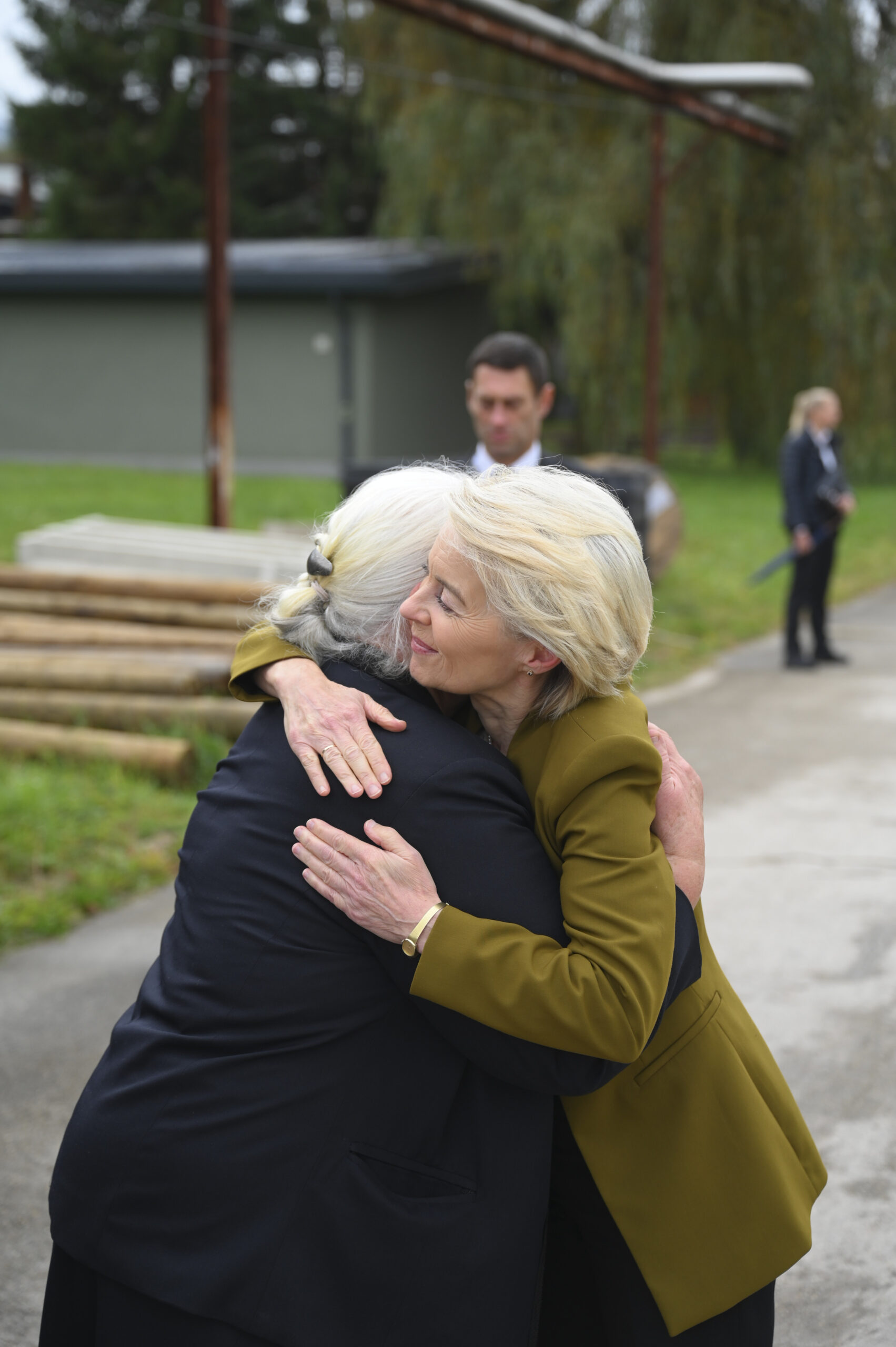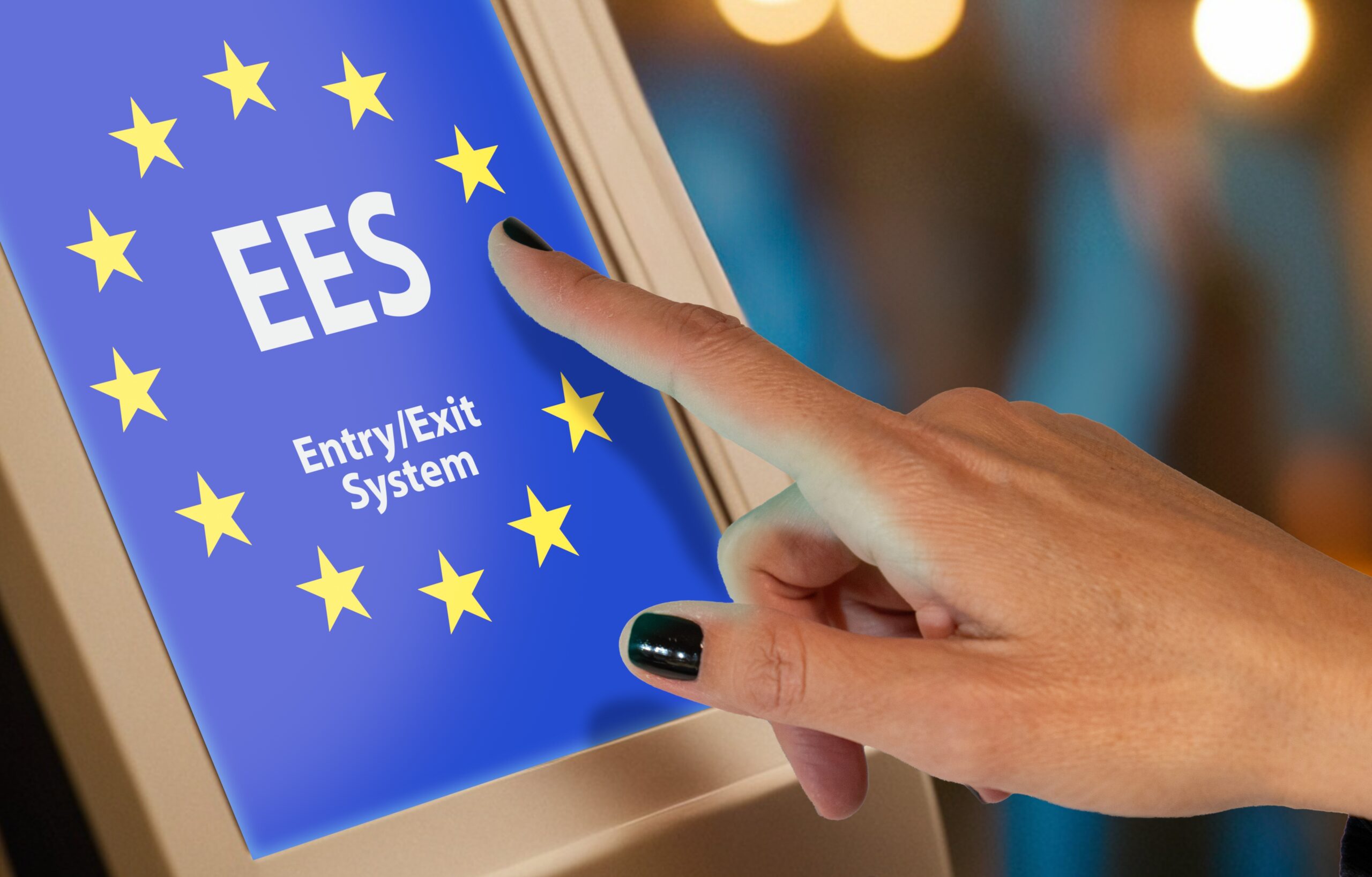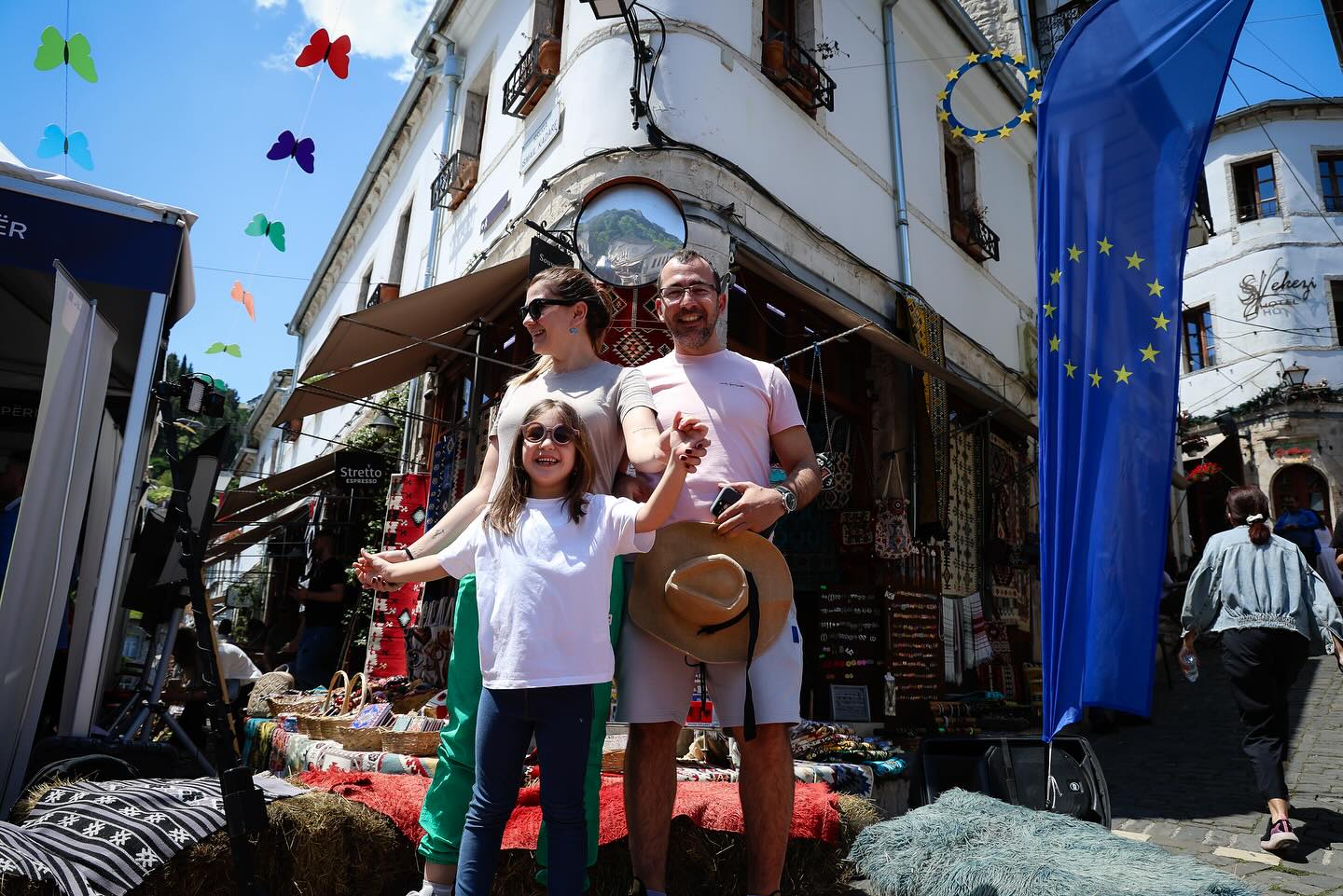Sarajevo Film Festival: Where the Western Balkans Meet the World
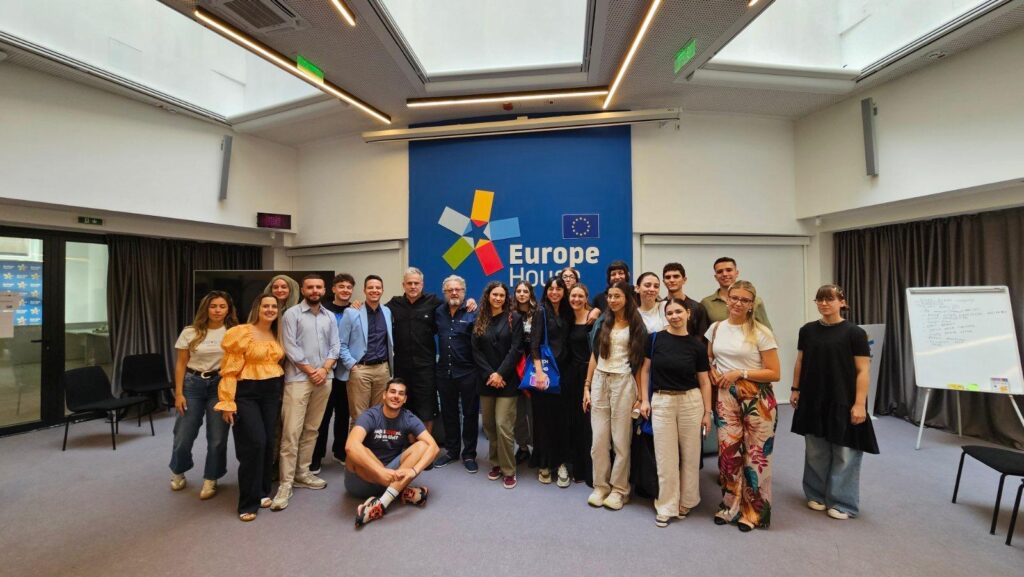
Sarajevo Film Festival: Where the Western Balkans Meet the World
By Teodora Ružić, Young European Ambassador, Bosnia and Herzegovina
The 31st Sarajevo Film Festival once again shed light on the heart of Bosnia and Herzegovina, as well as the entire region. Being at the Festival myself, I gained insight into what it truly means to be part of this beautiful event, and I’d love to share my experience.
Thanks to WeBalkans, I had the amazing opportunity to take part in the Dealing with the Past program at SFF. For five days, I was able to breathe in the Festival’s atmosphere of fame and knowledge, surrounded by some of the best in the film industry. Watching films from around the world and then having discussions and Q&A sessions with the directors and producers themselves gave me both inspiration for the path I want to follow in life and an invaluable opportunity to connect and learn.
Each day, we watched between one and three films, and all of them were truly extraordinary. If I were to describe each of them in detail, we’d probably be waiting for the 32nd SFF to begin before I finished. So instead, I’ll share my highlights.
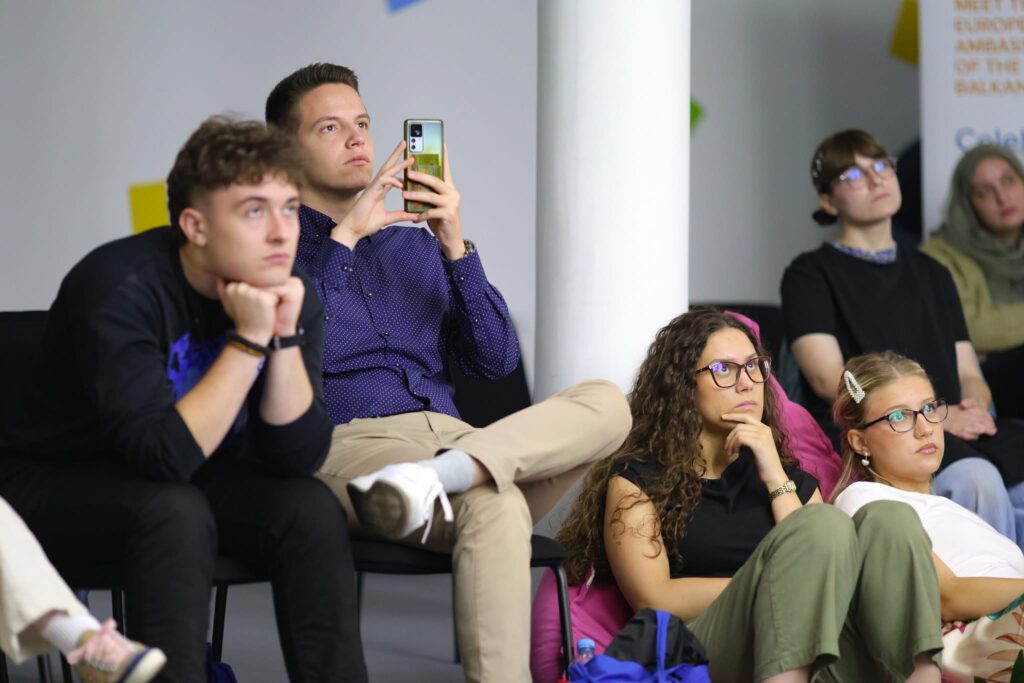
One of the very first films we watched was The Final Battle, directed by Mladen Miljanović. This was among the best films I saw at the Festival, not only because of its cinematography and acting, but also because of its magical soundtracks. Miljanović, who is also a professor at the Academy of Arts in Banja Luka and a painter, shared a thought that deeply resonated with me: “Usually we understand peace (politicians as well) as a pause between wars, and I think that we should change that narrative. We should start thinking about it as an active term – one that includes discussion, dialogue, and action, not passivity. I think that is the key to using the term peace.” Later on I was very interested in some of his previous work. He had some of truly amazing art works like: Performance without title, The Didactic Wall, Column and many others that I very much so enjoyed.
Hearing his views on art and film was one of my Festival highlights.
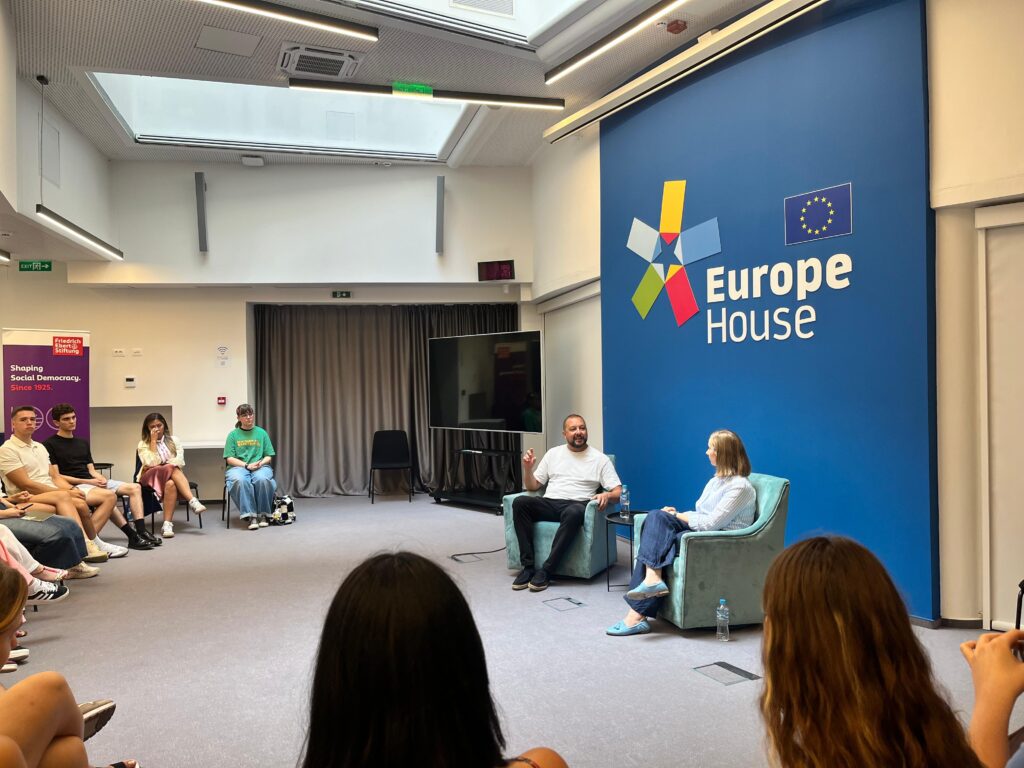
Another unforgettable experience came through the films of Norwegian director and artist Morten Traavik. Before attending SFF, I had never heard of him or his art, but after watching North South Man Woman and his 2016 masterpiece Liberation Day, I was completely drawn in.
Liberation Day had a particularly strong impact on me. It was fascinating to see how the rock band Laibach adapted to the restrictions they faced in North Korea, and how Traavik, with his brilliant leadership and narrative style, gave us an impactful look into the stressful days leading up to their performance.
Speaking with Mr. Traavik in person was even more inspiring. When asked about North Korea and his view of their society, he said: “There is a concept between freedom and safety. By freedom, I mean freedom of expression, freedom of speech, freedom to be chaotic – even freedom to be an a*hole. And safety means being shielded from harmful speech, influences, impressions, and things that can confuse you.”
I have never met anyone like him before, and at first, I was even a little intimidated. But he turned out to be one of the most inspirational people I’ve ever had the chance to meet. He answered all our questions openly, and I believe he would have stayed even longer if time had allowed. His art, worldview, and the music he introduced me to will stay with me for a very long time.
Later on, I discovered that one of the most famous podcasts in the region, “Agelast,” had released an episode featuring Morten, and of course, I listened to it right away. What struck me immediately was that, just as he did with us in person, he frequently mentioned George Orwell and his novel 1984. This resonated deeply with me, not only because 1984 is one of my favorite books, but also because each time I revisit it, I find myself reading it through a different lens. Morten’s own book is titled A Traitor’s Guide to North Korea. As he explained, “Since I have been accused of being a traitor by certain political environments back in Norway for collaborating with North Korea, just as Laibach has, I decided to call the book The Traitor’s Guide to North Korea.” He also revealed that the book is dedicated to an anonymous North Korean cultural bureaucrat who passed away in 2021 and whom he described as his best friend. Written as a long letter to this man, the book draws a paradox between him and Winston Smith from 1984:
“He is definitely a part of the system – he is a servant of a big, huge machine, just a small wheel in it. But at the same time, he carries within him this small flame of rebellion.”
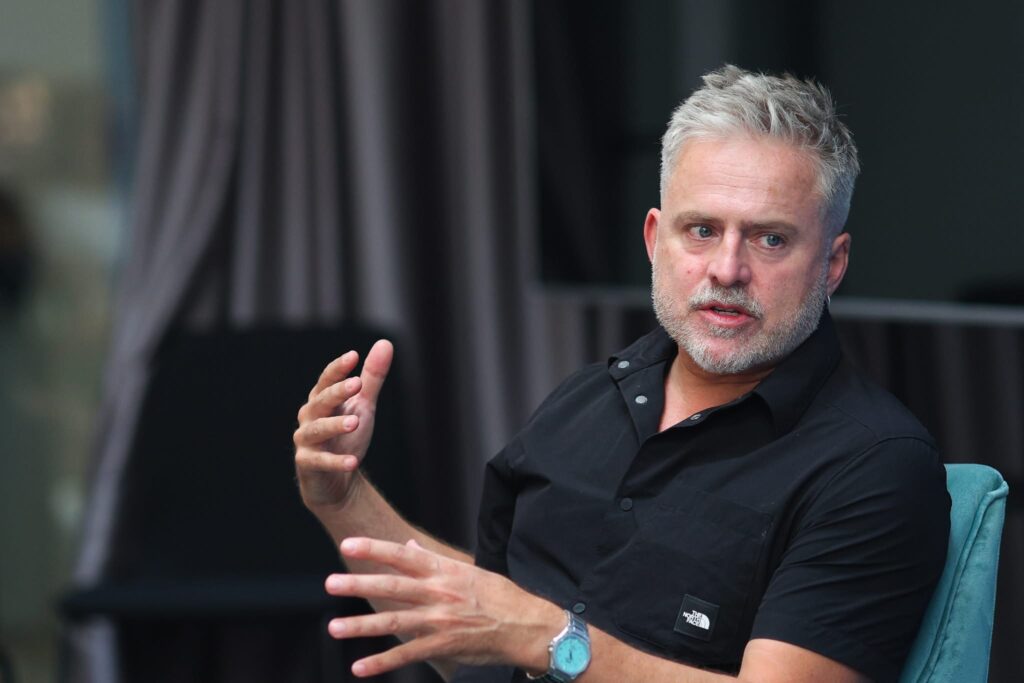
I found this comparison both moving and insightful, as it not only described his late friend but also, in many ways, reflected Morten himself. Listening to the podcast gave me yet another opportunity to hear his perspective, and I enjoyed it just as much as meeting him in Sarajevo. There is so much more I could say about him, but I will save that for another blog.
The week wasn’t always easy, we dealt with heavy topics, and at times it was difficult to simply move on from what we had just seen. But that’s exactly what made these films so powerful. I also want to mention Lejla and Slobodan, who guided us with daily reflection sessions. Their presence and support were invaluable, helping us process everything we had experienced. Beyond the Festival itself, Sarajevo was magical. During SFF, the city has a different vibe, almost as if it transforms to welcome the world. Thanks to WeBalkans, I had the chance to see Sarajevo through new lenses and enjoy it in a truly unique way.
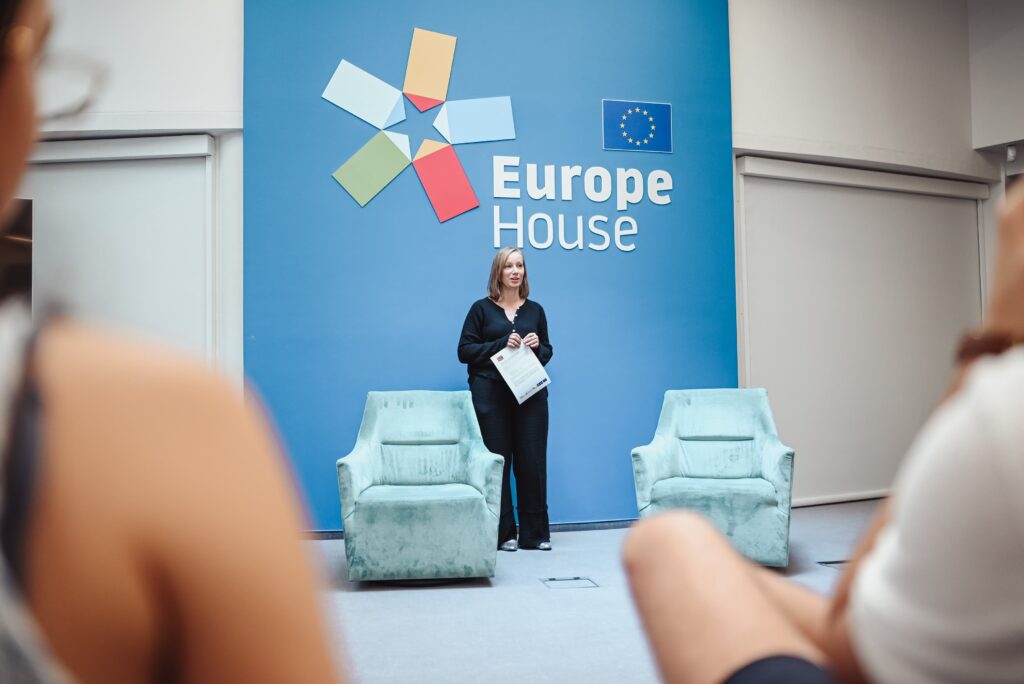
Film and festivals are my passion, and I gave my very best to Sarajevo. In return, Sarajevo gave its very best to me.
Stay tuned as in my next blogs I’ll share interviews with some amazing directors and producers, as well as a very special piece on the Hollywood star whose art has changed cinematography and the way we perceive films forever.
